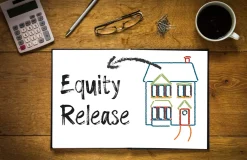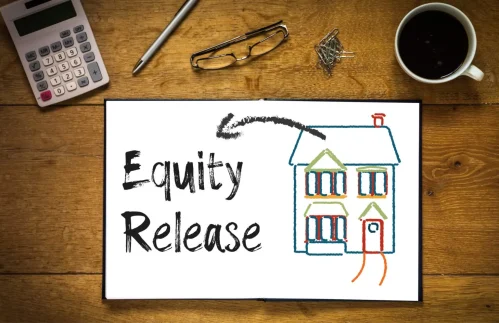
An IVA is designed to protect your home from your creditors. However if you start one you may have to sign up to an equity release clause. So what does this mean?
Included in this article:
- What is the IVA home equity release clause?
- How much equity do you have to release?
- What if you are unable to release any money?
Want help to start an IVA?
Give us a call: 0800 011 4712 or complete the form below to speak to one of our experts
What is the IVA home equity release clause?
If you are a home owner, your IVA agreement may include an equity release clause.
Where such a clause exists, it will state that if possible and reasonable you have to release cash from your property. This must be paid into the Arrangement over and above your monthly payments. As a result, it will increase the amount your creditors get back.
The clause normally comes into effect in month 54 of your IVA (although sometime it can be earlier). At that point your IVA company will ask you to establish the value of your equity by providing an up to date valuation and mortgage statement. If your share of any equity is more than £5000 you will have to try and release some of this.
For the purposes of an IVA the calculation of equity is based on 85% of the value of your property. So if it is valued at £300,000 the equity calculation will use a value of £255,000.
Your home is not as risk as long as you follow the obligations set out in your IVA proposal. The equity clause has strict guidelines on how much you can be asked to release and what happens if you are refused a re-mortgage.
Struggling to get your head round all of this? We can help. Call us (0800 011 4712) or complete the form at the bottom of this page. The advice is free and confidential.
How much equity do you have to release?
If on or around the 54th month of your IVA, your share of your property equity is £5000 or less (based on 85% of the market value) you are unlikely to have to take any further action. The release clause is ignored. Your IVA will end as normal after your last monthly payment has been made.
Where your share of any equity is worth more than £5000, you must try to release some of it by either re-mortgaging or with a secured loan. The amount you have to release is limited in the following way:
Your overall mortgage and secured loan payments cannot increase by more than 50% of your current monthly IVA contribution. So for example if your current IVA payments are £200/mth your mortgage payment can not increase by more than £100/mth. This will significantly restrict the amount of equity that you are able to release.
If your property is owned in joint names with someone else, their share of the equity can’t be touched. Only your share is considered.
The IVA equity release rules for Protocol Compliant IVAs were updated in April 2025. If your IVA started after April 25 and is based on the IVA Protocol, you will not have to release equity from your property regardless of the amount.
What if you are unable to release any money from your home?
Even if your share of the home equity is greater than £5000 you may not actually be able release any of it. There could be a number of reasons for this.
- Given your poor credit rating very few lenders will consider you. The ones that do will charge high rates of interest. This will often mean that to release anything at all your mortgage payments would have to go up by more than 50% of your IVA payment. This is not allowed.
- Your age may be a limiting factor. You may not be able to borrow more if you are nearing or past retirement age.
- A joint owner of your property may simply refuse to give their consent to make any mortgage changes.
If given any of these limitations you are unable to release equity, no further action is taken regarding your property. However, your IVA will be extended for an additional 12 months. During this time your current payments continue and you remain subject to the conditions regarding increases in income or windfalls.
If you cannot release equity from your property, the equity in your home is yours to keep. After the review in or around month 54, it can’t be reconsidered.


